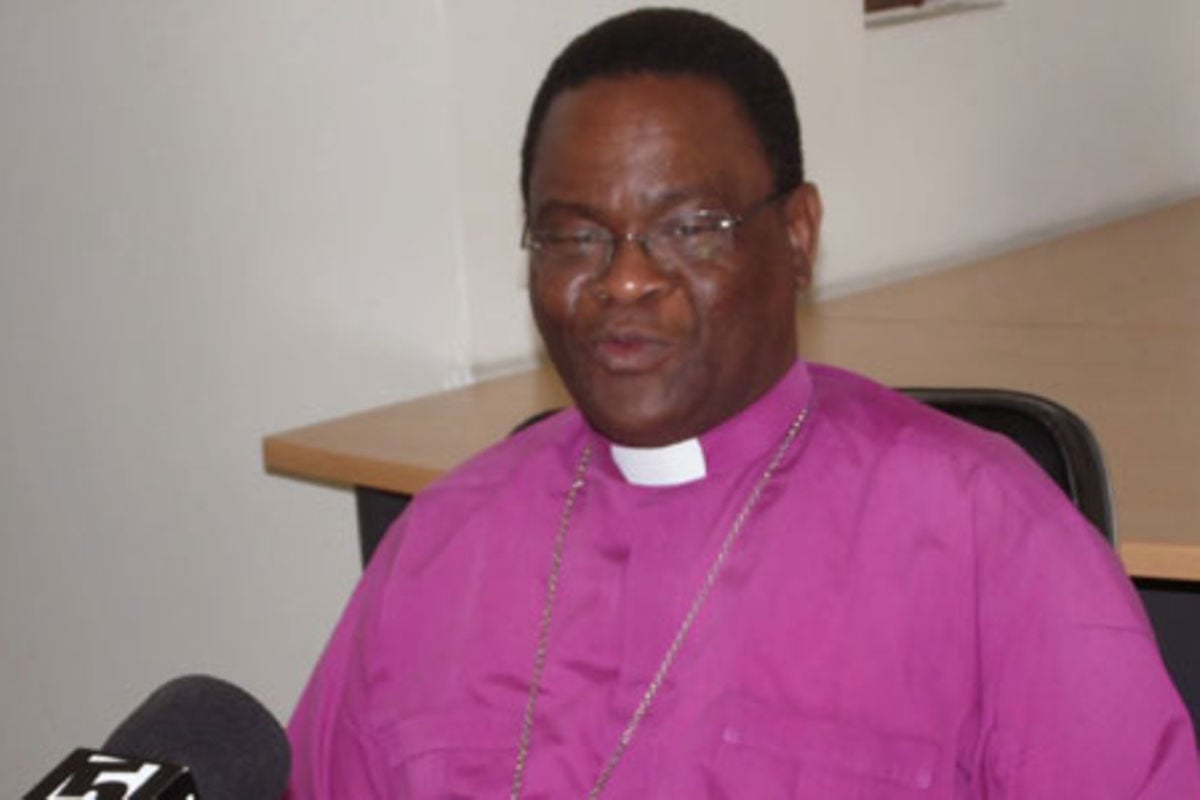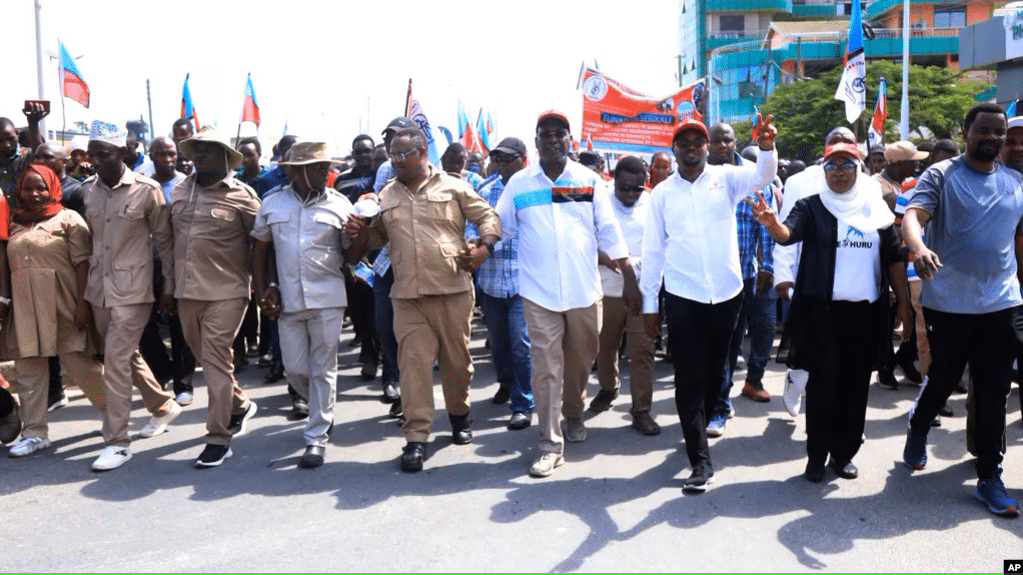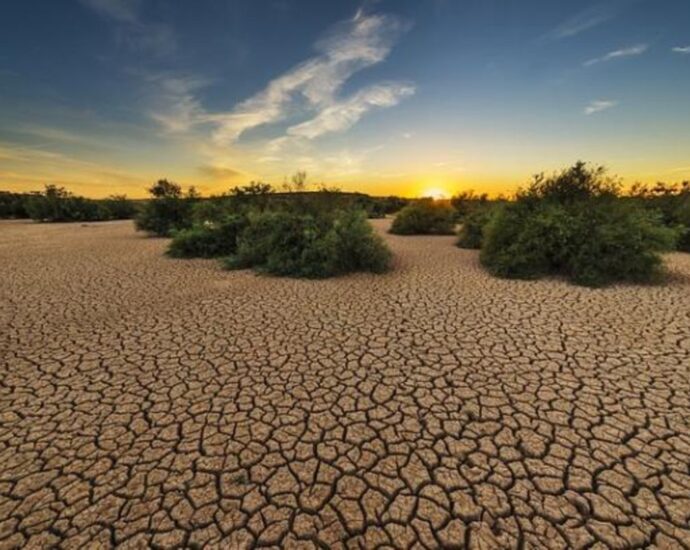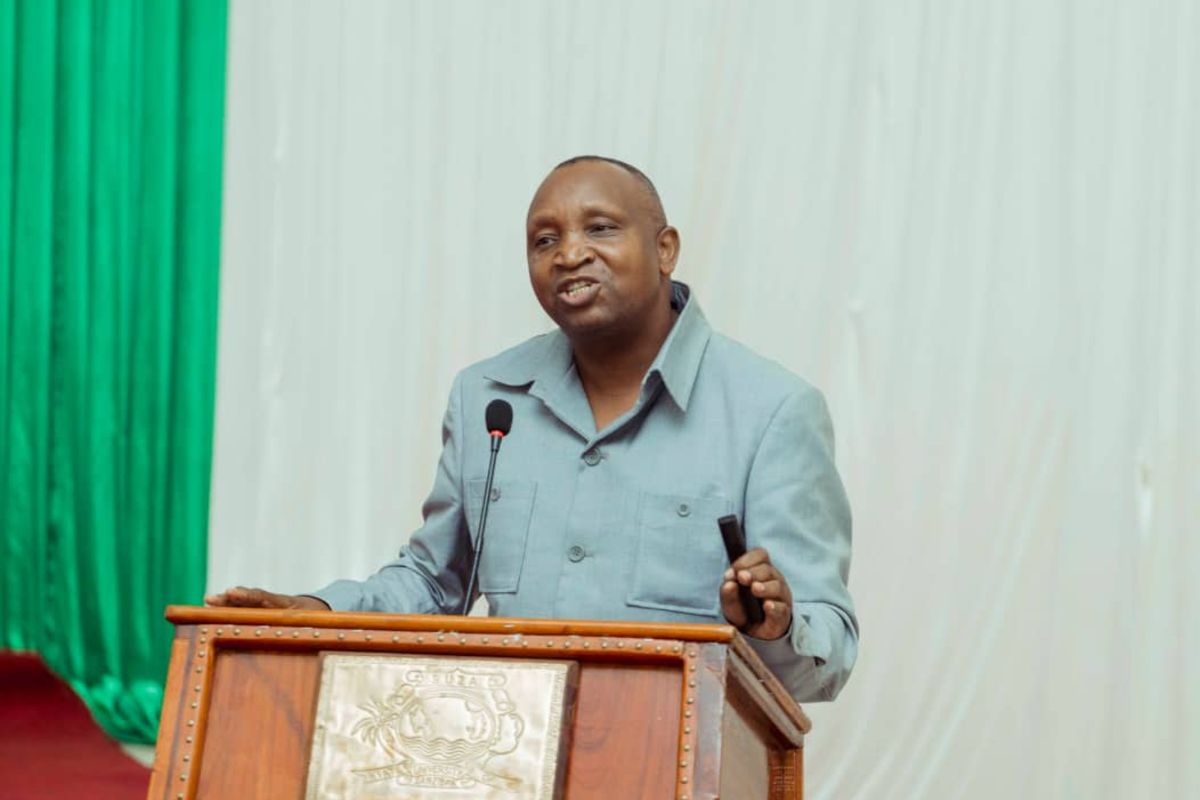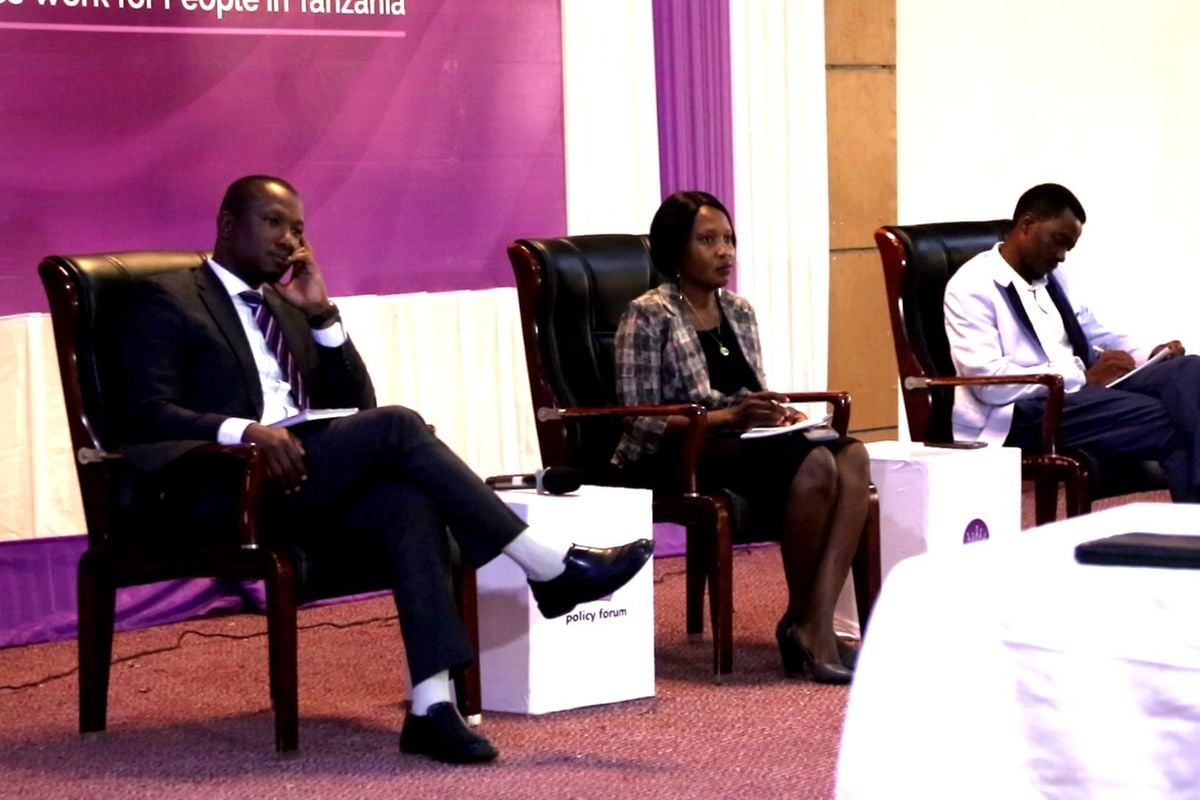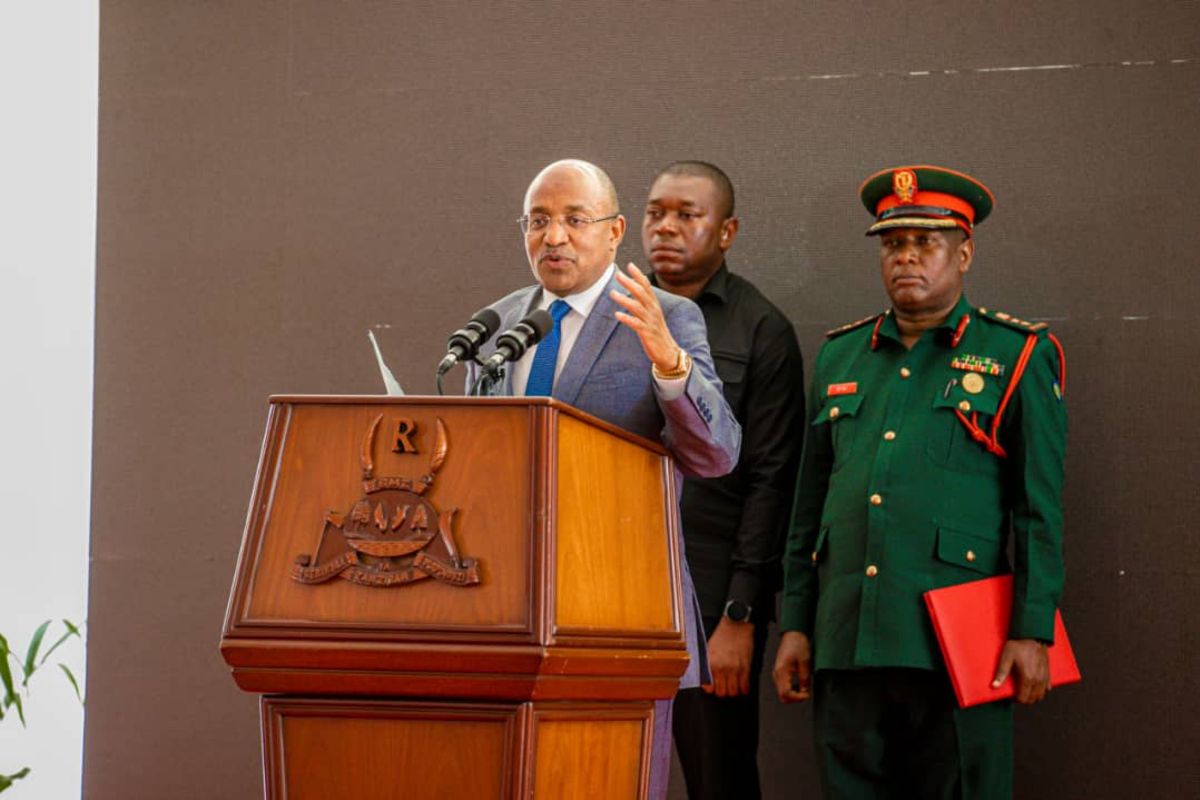Tanzania’s Maasai Women Adopt Climate-Smart Solutions to Tame Drought
Mvomero, Tanzania — In the scorching sun of Mikese village in Tanzania’s eastern Mvomero district, 31-year-old Maria Naeku tirelessly tends to her small vegetable patch. Each time she pulls a weed, the red soil stains her hands as she guides the trickle of water from a maze of pipes through an elevated bed to nurture her plants. In a drought-stricken area, Naeku’s small garden is a lifeline for her family, giving them food and income.
“When the drought hit, our cattle died, and we couldn’t get milk for the children,” Naeku says. “I knew I had to find a way to feed my family, so I had to grow vegetables.”
The drip irrigation technique, where a network of pipes with tiny holes spit water directly to the plant in a split second, was new to her but she tried. “I didn’t know how if tiny drops of water could nourish the crops,” she says. “But when I saw green leaves sprouting from the soil, I knew I had a brighter future.”
Naeku’s quickly became an expert, her success inspired other women across the village to follow her lead. The Maasai, traditionally, known for cattle rearing–a symbol of wealth and security are increasingly adopting climate-smart farming to cope with drought as rains have become erratic due to climate change. Women like Naeku, who once depended entirely on these herds, have been forced to adopt innovative farming techniques to survive.
Shattering the Patriarchy
In Maasai culture, men have long held the reins of power, with women relegated to the roles of caregivers and homemakers. Decision-making, particularly in land and livestock matters, has traditionally been the exclusive domain of men. However, the severe droughts have shifted these dynamics. With their cattle dwindling and their families hungry, Maasai women have begun to step into roles once reserved for men, embracing climate-smart agriculture as an alternative means of survival.
“We are no longer just caretakers of our families,” says 34-year-old Nasarian Lengai, a mother of five who has become a local champion for horticulture farming at Mikese. “We are decision-makers who are shaping the future of our community.”
Initially skeptical, Lengai strongly believe in horticulture using organic farming practices. “When I first heard about these methods, I didn’t think they’d work for us,” she says. “But after seeing how much better my crops are now, I’m sure this is the right way to go.”
For centuries, the Maasai have relied on cattle for their food–milk, meat, and even blood. Switching to farming was a big change from their old ways.
“We used to believe that having many cattle was the only way to keep wealth and ensure security,” says Esuvat Joseph, who leads the Tupendane Maasai women’s group at Mikese village. “But now we understand that we need to cope with drought. We’ve learned to keep fewer cattle and focusing more on farming.”
Tupendane group has also embraced water conservation techniques, constructing ground reservoirs to collect rainwater. “This water is very important,” she explains. “We use it for irrigation when the rivers dry up.”
Climate-smart Solutions
The Maasai women’s adoption of climate-smart agriculture is not just a response to immediate needs but a strategy for long-term resilience. Through initiatives supported by the Norwegian Church Aid–an international charity–these women are learning to diversify their income sources, reducing their dependence on livestock and embracing sustainable horticulture practices.
“We’re teaching these women how to make the most of their small plots of land,” explains Oscar John, the program manager with Norwegian Church Aid. “By diversifying their income sources, they’re less dependent on livestock, which is increasingly vulnerable to drought.”
Conservation agriculture, a key component of this initiative, promotes sustainable farming techniques that improve soil health and increase crop yields without depleting natural resources.
For the women of Mvomero, this has been a divine plan. They are learning to grow drought-resistant crops, rotate their fields, and use organic fertilizers, all of which contribute to better crop yields.
As more women embrace climate-smart agriculture, the ripple effects are being felt in neighboring villages, as women once skeptical of these new methods, are now seeing the success in Mvomero and beginning to learn these practices in their own drought-stricken lands.
Empowerment in Action
The shift from livestock to crop farming has had a huge impact on the social dynamics within the Maasai community. Women, who were once sidelined in decision-making processes, are now taking the lead in managing their families’ resources. This newfound empowerment is improving their social and economic status while challenging the patriarchal norms that have long defined their society.
“We’ve always been made to believe that men are the decision-makers,” says Lengai. “But now we’re showing that women can lead too. We can take care of our families and make better decisions.”
This sense of empowerment is evident in the way the women of Mvomero approach their work. They are tending to their crops and building a future where their voices are heard and their contributions are valued. The construction of rainwater harvesting systems, for example, is a task that these women have taken on with pride. “We don’t wait for our husbands to do it; we build these reservoirs ourselves,” says Joseph. “It’s our way of showing that we can take care of ourselves.”
The men in the community are recognizing the shifting gender roles, and some of them are starting to appreciate the benefits of shared decision-making. While resistance remains, the success of these women is slowly changing attitudes. As the benefits of climate-smart agriculture become more apparent, more men are joining their wives in these efforts, working together to secure a better future for their families.
Challenges on the Horizon
The transition from livestock to crop farming is not without its difficulties, particularly for a community that has long measured wealth by the size of its herds. “There are still some who resist change,” admits Joseph. “They see farming as a lesser occupation compared to cattle herding. But as more of us succeed, the mindset is shifting.”
The path to fully accepting these new practices is slow, and the women of Mvomero know their success is just the start. They face many challenges ahead, including the risk of drought and strong cultural norms that shape gender roles in Maasai society.
But the women are strong. They know that their efforts are not just to overcome the on-going crisis but also about creating a better future for their children.
“We are planting the seeds of change,” says Naeku. “Our daughters will grow up knowing that they can be anything they want to be. They will see that women can lead, that we can innovate, and that we can solve any problems.”
A Model for the Future
The success of the Maasai women in Mvomero is beginning to attract attention from other drought-hit areas in Tanzania. Development organizations and government agencies are taking note of the community’s innovative approach and exploring ways to replicate it in other regions facing similar challenges.
“We see this as a model that can be adapted and implemented in other parts of the country,” says John. “The key is to empower communities, particularly women, to take control of their resources and livelihoods. When people are given the tools and knowledge they need, they can achieve incredible things.”
As Maasai women in pastoral communities make progress, they are not only securing their own future but also creating a stronger and fairer society. Their journey shows determination, innovation, and empowerment–a true example of women’s strength in overcoming challenges.
In Tanzania’s Maasai steppe, where the future of pastoral communities is uncertain, these women are showing that with the right support, even the most marginalized can overcome their problem and lead a better life.
IPS UN Bureau Report
Source: allafrica.com



